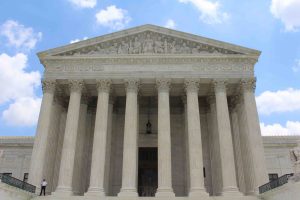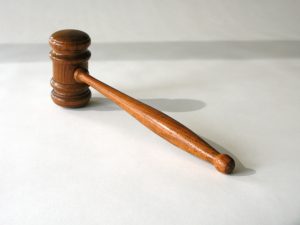 Any time a person needs to file a lawsuit, it is natural to worry about going to court. Most people do not want to face the person they are accusing in court, and just the process of appearing in court often means the case will be quite lengthy, meaning the person bringing the lawsuit will have to deal with the matter for some time. All of these factors hold true in qui tam lawsuits, too. Fortunately, whether you are bringing a lawsuit under the federal False Claims Act or the California False Claims Act, there is a likelihood that the case will settle. Below are just a few of the most common reasons why that is.
Any time a person needs to file a lawsuit, it is natural to worry about going to court. Most people do not want to face the person they are accusing in court, and just the process of appearing in court often means the case will be quite lengthy, meaning the person bringing the lawsuit will have to deal with the matter for some time. All of these factors hold true in qui tam lawsuits, too. Fortunately, whether you are bringing a lawsuit under the federal False Claims Act or the California False Claims Act, there is a likelihood that the case will settle. Below are just a few of the most common reasons why that is.
Reduce Legal Fees
Going to court always means that there are going to be more legal fees. When attorneys must prepare for court, it involves much more of their time and many lawyers charge higher fees for going to court than for reaching a settlement. The companies accused of making false claims know this and they will often settle to reduce the amount of legal fees they will have to pay because they also have to pay the relator’s legal fees.
 Healthcare Fraud Lawyer Blog
Healthcare Fraud Lawyer Blog



 Qui tam suits often make the news, though you may not be sure of what they are and why they matter. Qui tam suits have to do with fraud against the federal or a state government. In recent years, the U.S. and individual states have made a concerted effort to recapture the money that individuals and businesses have wrongfully obtained or kept from them. By learning more about qui tam suits, you may be better able to recognize fraud when you see it and understand what you can do with this concerning information.
Qui tam suits often make the news, though you may not be sure of what they are and why they matter. Qui tam suits have to do with fraud against the federal or a state government. In recent years, the U.S. and individual states have made a concerted effort to recapture the money that individuals and businesses have wrongfully obtained or kept from them. By learning more about qui tam suits, you may be better able to recognize fraud when you see it and understand what you can do with this concerning information.




